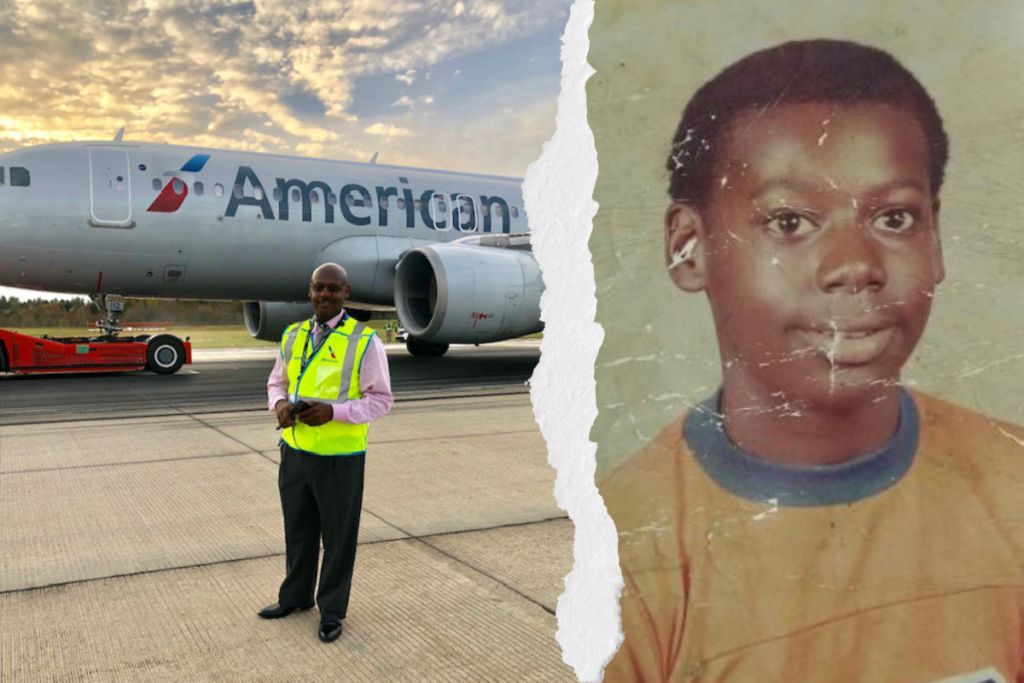Will Goodwin’s love for aviation started on a kindergarten field trip to the Columbia (SC) airport. Fifty years later, in his job as General Manager of Customer Care-International for American Airlines, he thanks a kind flight attendant for taking his hand and guiding him into a whole new world inside the aircraft.
“I can remember the rest of my class going up the air stairs into the aircraft while I was standing on the ground just crying my eyes out because I was afraid of heights,” Goodwin said in a recent interview with the Collections team at Sullenberger Aviation Museum. “But then a flight attendant came down and took my hand guiding me up the air stairs and into the aircraft. I instantly became amazed. She first showed me the cockpit and took a little extra time to help me through the process. My love for aviation began right then.”
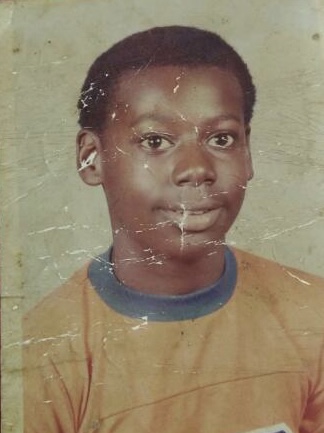
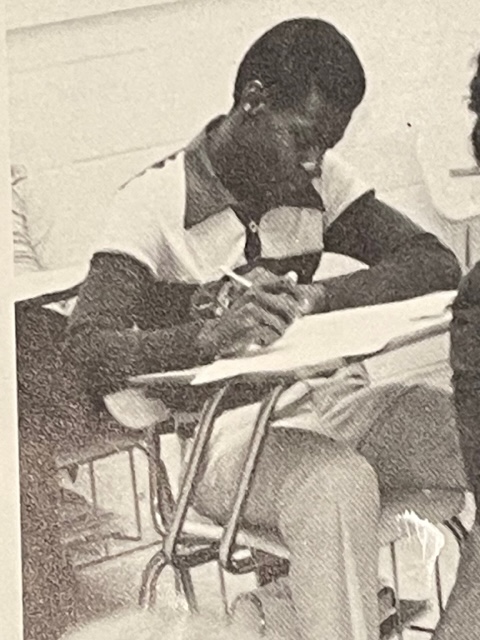
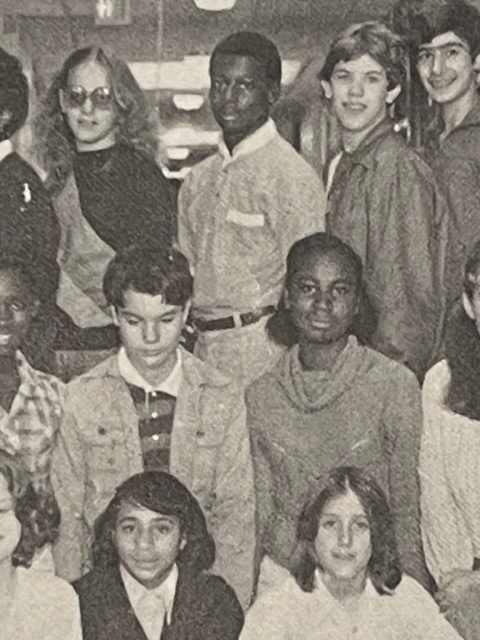
Goodwin joined the military at age 18, but when asked if he ever considered becoming a pilot, his answer was clear.
“I didn’t have the financial resources to learn how to fly, but I did have a friend that was also in the military who was already a pilot,” said Goodwin. “He would take me out for a spin, and sometimes he would let me take control of the wheel. It’s something you wouldn’t dream of trying these days.”
After his military service, Goodwin got a degree in business administration, but his love for aviation never left.
“My very first job out of college (1989) was with U.S. Airways here in Charlotte,” Goodwin remembers. Even though I didn’t have a degree in aviation, I did have a business degree and that allowed me to become a Flight Attendant Crew Coordinator.”
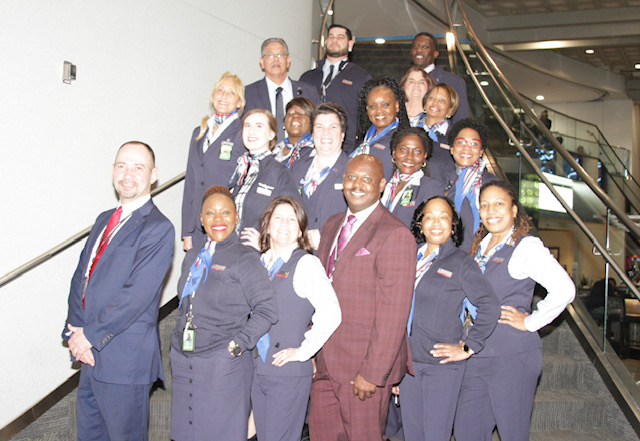
In a time before computers, the process of assigning crews to aircraft was very manual. Goodwin and his coworkers were responsible for routing flight attendants. He actually had to look at flight attendant pairings and come up with what would be their next assignment. He wrote up the information, grabbed the sheet of paper, and ran up the jetway stairs when a flight came in. Then he would speak to the flight attendant and say “Hey, this is your next assignment.”
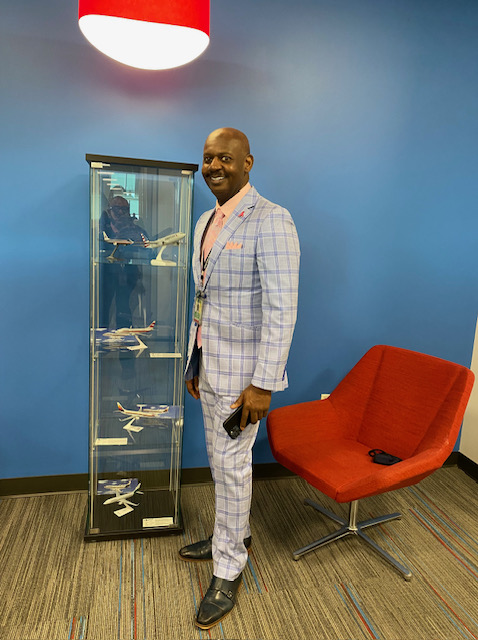
What he does has grown exponentially since then. Even though he’s no longer a Flight Attendant Coordinator, he uses Microsoft Teams to communicate to everybody that’s involved in the process. The process happens almost in real time, within a few seconds. So they’ve gone from something that was completely manual in 1989 to communicating in real time with an entire group of people that help put the aircraft into the air.
“I can speak to the entire team–the tower, our ground staff, the agent working the gate, the pilot, or the flight attendant,” said Goodwin. “The teams concept and the use of automation has made it happen within two or three seconds. It’s just that fast–so much faster than I could ever walk or run up the back of the jetway stairs.”
One thing that Goodwin didn’t expect when he went into aviation as a career was the depth and breadth of the aviation industry. Aviation is a varied business, and it takes lots of different kinds of people with all different kinds of skill sets to run the business. There is an opportunity for almost everyone to contribute.
In aviation, Godwin said, “we need accountants, we need cleaners, we need catering, we need people to do books, we need technology. And technology changes so quickly, a year later it’s off in a different direction. I just didn’t quite realize that it took so many different types of careers to make all of this happen.”
During his career, he had the opportunity to transfer to different cities a couple of times, moving from the ramp, to being a customer service agent, and finally a customer service supervisor. But in 2009, he came back to interview for a job in Charlotte.
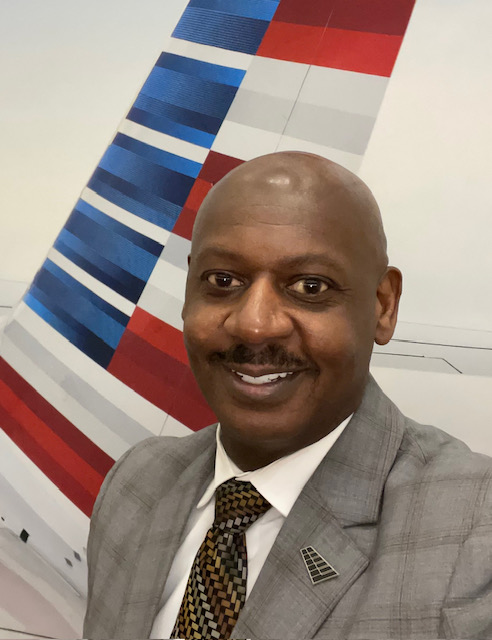
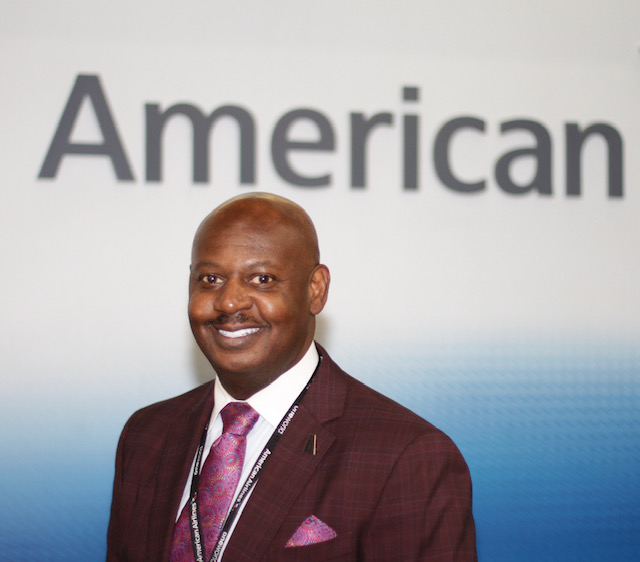
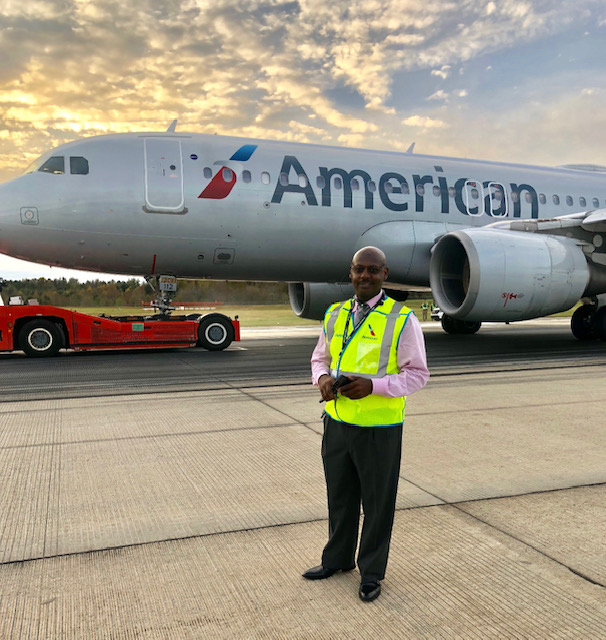
“I can remember right at the end of the interview an incident started to unfold,” Goodwin remembers. “So my introduction to the company after completing the interview was ‘OK, we’ve got an incident.’” That incident was US Airways Flight 1549, which would soon be known as “The Miracle on the Hudson.”
Throughout the whole experience, he could feel the adrenaline in the room. He saw firsthand how the company wanted to take care of its employees and its passengers. He saw that as a sign that he was in the right place–that Charlotte was where he needed to be–and he has been there ever since.
And in the end, the people aspect of the job has far exceeded any excitement that he initially felt about being in the aviation field.
“I love people; I love what I do,” Goodwin says. “I love the fact that from the employees to the passengers–it’s a different day. Every single day. Helping to take care of people through life’s journey. It’s amazing.”
Will Goodwin’s oral history interview is archived in the Sullenberger Aviation Museum’s Historic Collection and will be accessible to researchers and the public.

